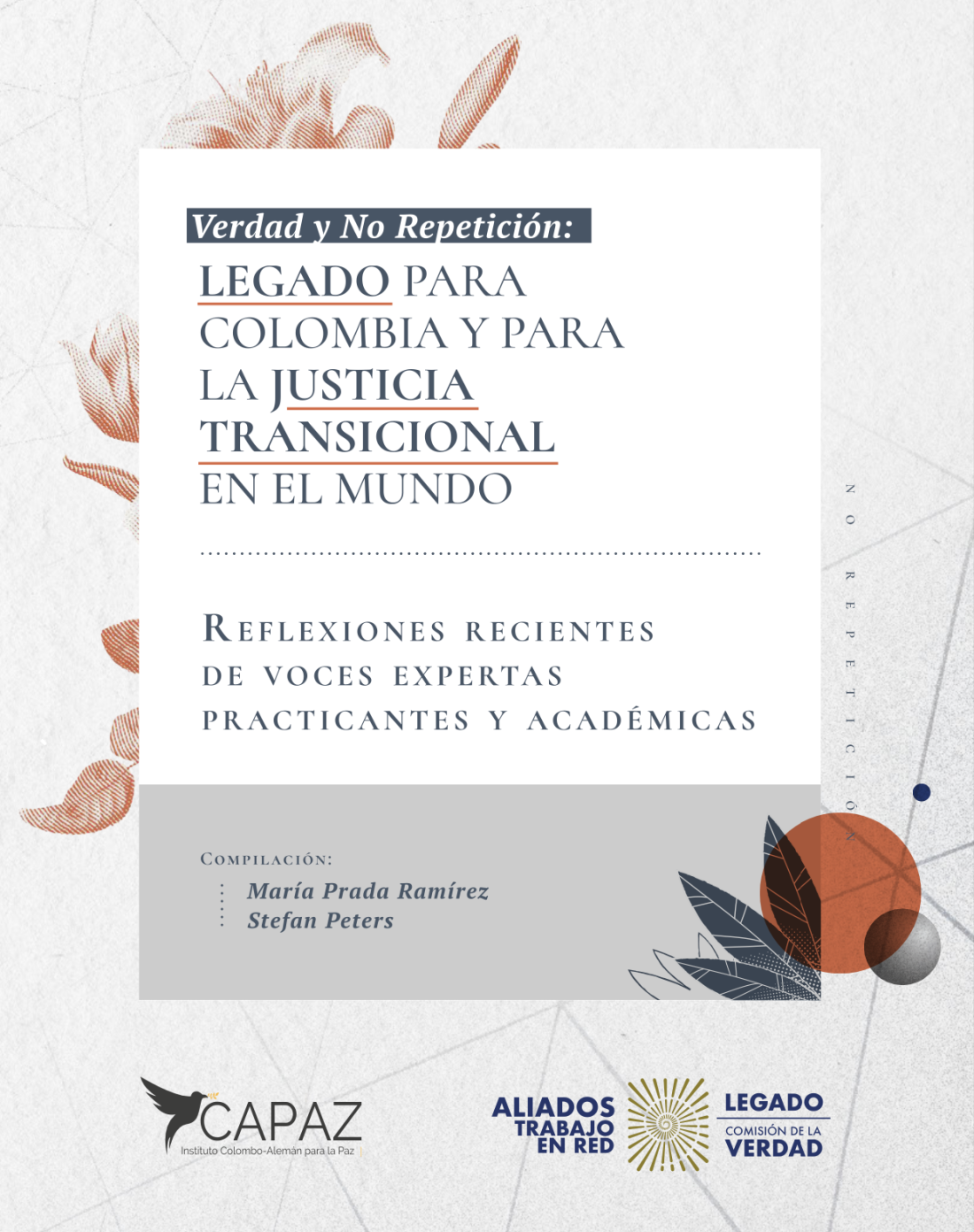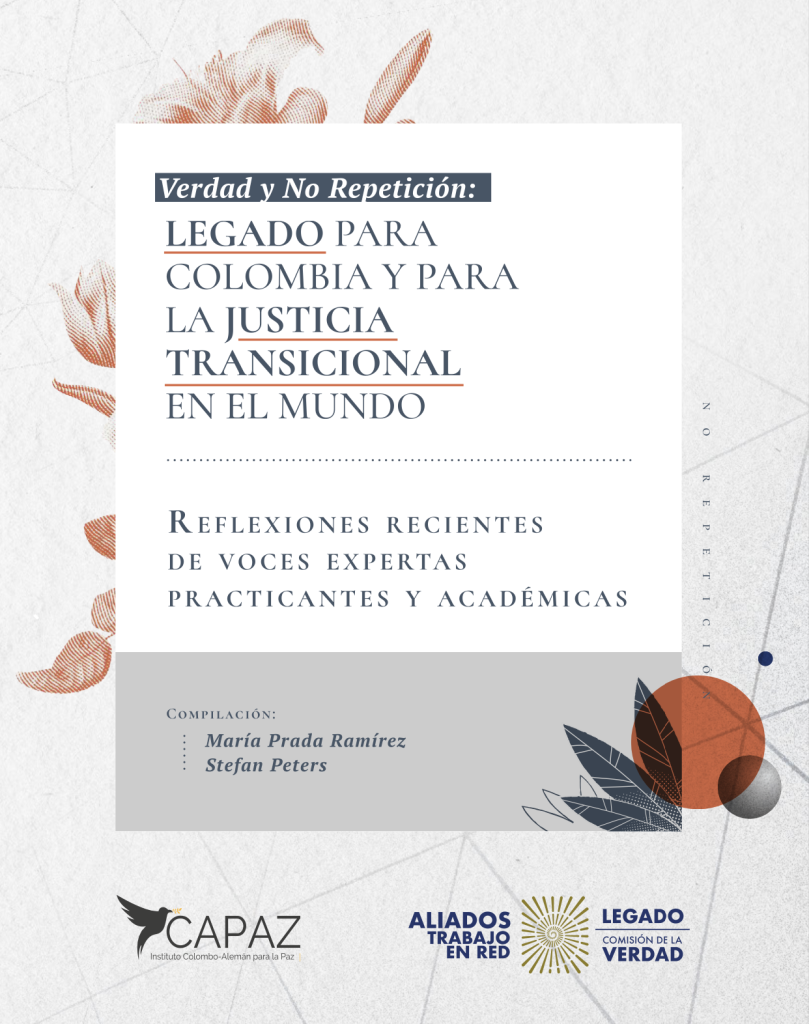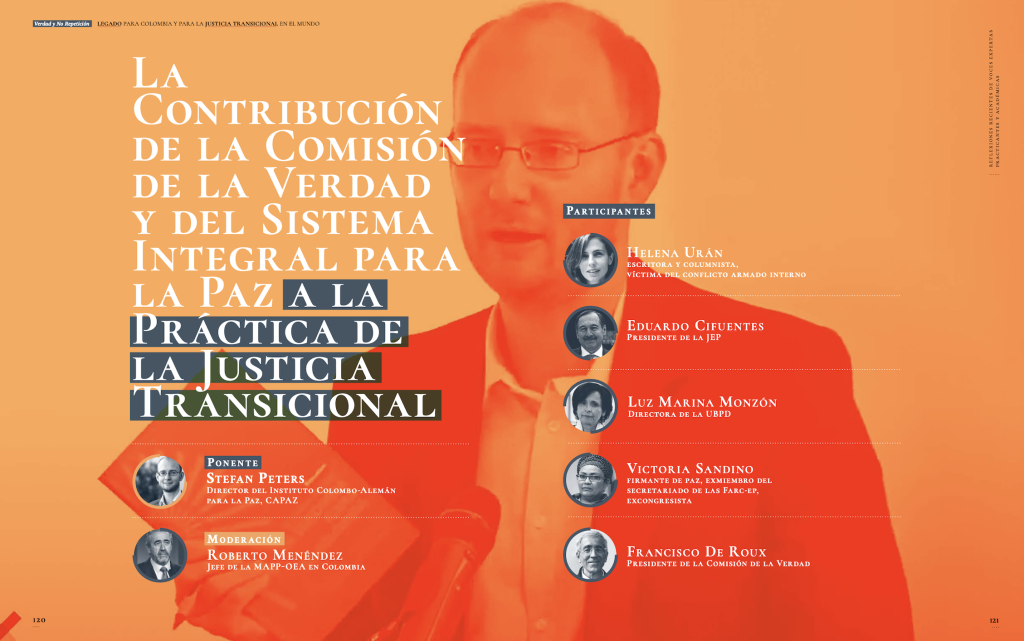
Truth and non-repetition: a legacy for Colombia and for transitional justice in the world – recent reflections from expert practitioners and academics

In partnership with the Truth Commission, CAPAZ supported, financed, and compiled a series of reflections and contributions to the Truth in the publication: Truth and non-repetition: a legacy for Colombia and for transitional justice in the world – Recent reflections from expert practitioner and academic voices. In the words of CAPAZ Academic Director, Stefan Peters, the text “contributes to the debate on the work carried out by the Truth Commission, and on the accompaniment given by national and international actors to its mandate, as well as to the discussion of the Truth Commission’s results inside and outside Colombia”.
The publication summarises meetings and presentations that were held to discuss ideas and exchange experiences on different topics related to the Legacy of the Truth Commission. This included, for example, topics such as the international experience of other truth commissions, networking with allies of the Commission or recommendations for non-repetition and its implementation.
Besides being one of the compilers of the text, Dr. Peters is the author of the chapter called, The contribution of the truth commission and the Comprehensive System for Peace to the practice of transitional justice. In it, there is a summary of a meeting that brought together the heads of the three entities of Colombia’s Integral System for Peace:
“An exchange took place between them on the lessons that the system in general and the Commission in particular have left us: what contributions, lessons, and criticisms do these entities have for themselves and for their peers? A representative victim and a peace signatory who was part of the now defunct FARC-EP also spoke, completing the spectrum of truth, search, and justice”.
The text also includes the official presentation of the Truth Commission Follow-up and Monitoring Committee. The Commission set up this committee, which is made up of seven people representing different sectors of society, including victims’ and human rights organisations.
The committee will be in charge of following up and monitoring the implementation of the recommendations; dialogue with different entities and victims’ and human rights organisations; submitting periodic reports on the follow-up to the recommendations, which must have a territorial, differential, and gender focus; and disseminating its reports in the media.



